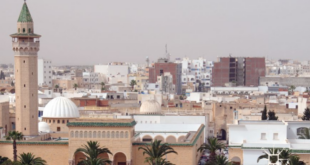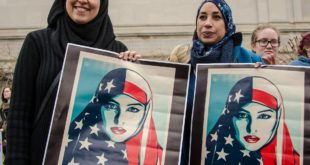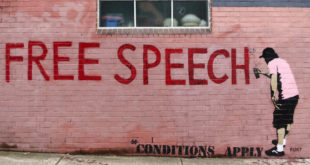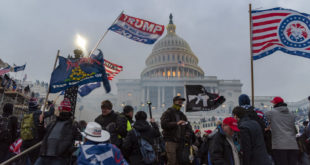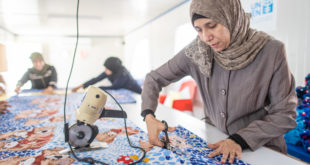Issue 37, Winter/Spring 2024 https://doi.org/10.70090/TI24AIS5 Abstract The phenomenon of alienation, which is widely examined in both specialized and general studies, has seen a decline in its conceptual clarity and usage in recent times. Meanwhile, a new paradigm known as Society 5.0 has emerged, which coincides with the technological surge in …
Read More »Alternative Media and Investigative Journalism in Lebanon
Numerous alternative digital media outlets have been emerging recently in Lebanon in response to the country’s established traditional media that is highly partisan with editorial agendas often serving the Lebanese political and economic elites. Many of these outlets have been launched initially by independent researchers or civil society activists with …
Read More »Women’s Activisms and the Future of Feminist Movements in the Arab Region
Issue 32, summer/fall 2021 https://doi.org/10.70090/SES21WAF On Tuesday, December 7th, 2021, Arab Media & Society hosted a virtual panel discussion titled “Arab Media Between Conflict & Peace.” Following the panel, Managing Editor Sarah El-Shaarawi spoke with panelist Dr. Sahar Khamis about her co-edited volume Arab Women’s Activism and Socio-Political Transformation: Unfinished …
Read More »Sahar Khamis on Shifting Tides for Arabs and Muslims in the US
In light of the changes taking place in the United States, Arab Media & Society asked Dr. Sahar Khamis her thoughts on how the Arab and Muslim communities in the US have been affected. 1) What was the most notable effect of Trump’s policies on the Muslim community in the …
Read More »Trump, Twitter, and Regulation of Big Tech: Perspectives from the Arab World
The suspension of the Twitter account of former U.S. president Donald Trump after violating the platform’s publishing policies brought forth significant controversy and aroused many questions about the right to freedom of expression and its boundaries, not only in the United States, but across the globe. In the Arab region, …
Read More »Regional Media Debate the Strength of American Democracy
For a region that has had to deal with the aftermath of decades of U.S. intervention, occupation and punishing sanctions under the banner of democracy and human rights, the live pictures of American pro-Trump rioters storming the U.S. Capitol were nothing short of astounding. Public ridicule and scorn came fast …
Read More »Rami Khouri on Lebanon’s Outlook and What Has Happened to the Country’s Media
Issue 30, summer/fall 2020 https://doi.org/10.70090/SS29RKLOg On October 17, 2019, protests began in Lebanon with angry and largely disenfranchised citizens calling for a complete overhaul of the country’s unique political system. In the year that has followed, Lebanon has suffered through one disaster after another, with seemingly unending political shifting. On …
Read More »Info-Deficiency in an Infodemic: The Gender Digital Gap, Arab Women and the COVID-19 Pandemic
Issue 30, summer/fall 2020 https://doi.org/10.70090/SKEC29DI Abstract: This article tackles the complex struggles faced by Arab women, including multiple layers of invisibility, marginalization and inequality,[1] all of which have significantly worsened during the COVID-19 pandemic. This examination includes a special focus on how and why the “digital divide,” defined as the …
Read More »Infantilizing Arab politics: A quick reading of the viral Ramadan 2018 Zain telecom ad
Issue 26, summer/fall 2018 https://doi.org/10.70090/OAG18IAP Since 2011, the Kuwaiti telecom company Zain Group, one of the largest in the Middle East, has produced a series of popular ads broadcast annually during Ramadan. The ads are songs, usually featuring celebrities singing and dancing with children. Since 2015, the ads have become …
Read More »Mohammed Assaf’s victory five years on: Arab Idol and the Zionist colonization of Palestine
Issue 26, summer/fall 2018 https://doi.org/10.70090/LB18MAVA Abstract This essay, based on the author’s fieldwork on Palestinian music and oral history, examines the position of singer and Arab Idol winner Mohammed Assaf in relation to the contemporary Palestinian struggle and the wider play of power in the Arab world. The issues discussed …
Read More » Arab Media & Society The Arab Media Hub
Arab Media & Society The Arab Media Hub


